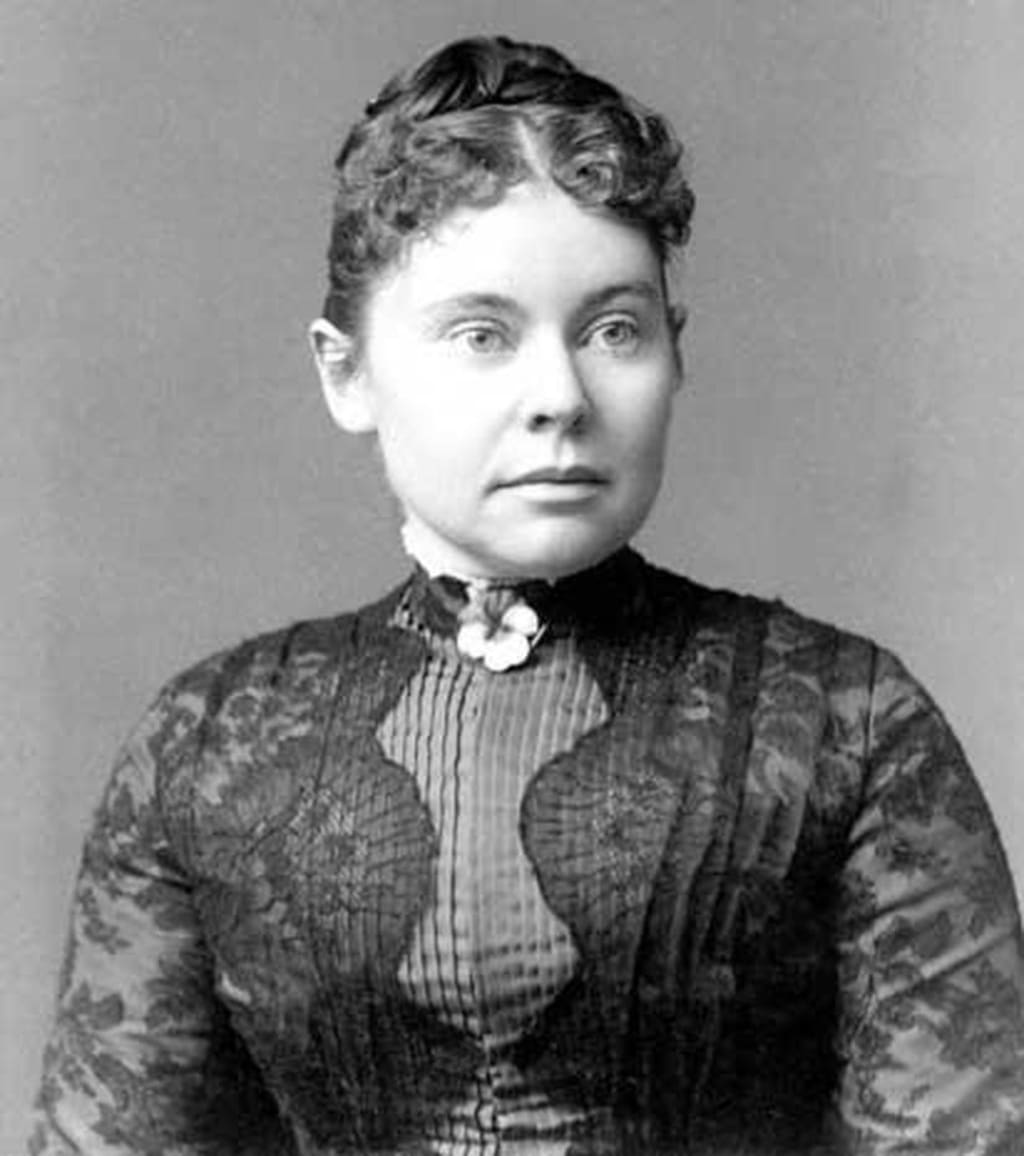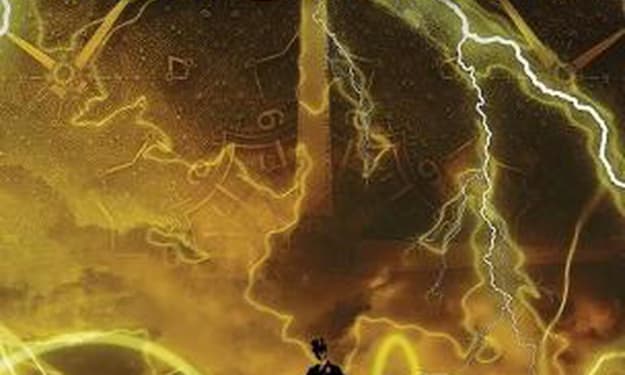
Introduction:
The Lizzie Borden case of 1892 continues to captivate the public's imagination with its grisly details and unresolved questions. The murder of Andrew and Abby Borden, Lizzie's father and stepmother, respectively, in their Fall River, Massachusetts home, shocked the nation and became a media sensation. With Lizzie Borden at the center of the investigation, this case remains a subject of intense speculation, debate, and countless theories. In this article, we delve into the events leading up to the murders, the trial that followed, the unanswered questions, and the enduring legacy of the Lizzie Borden case.
I. Background and Setting:
A. Overview of Fall River, Massachusetts in the late 19th century
B. Introduction to the Borden family and their social standing
II. The Murders:
A. The discovery of Andrew and Abby Borden's bodies
B. Examination of the crime scene and the use of an axe as the murder weapon
C. Timeline of events leading up to the murders
D. Initial suspicions and the focus on Lizzie Borden
III. The Investigation:
A. Lizzie Borden's behavior and statements under scrutiny
B. The role of the police and forensic investigation techniques of the time
C. Examination of potential motives and other suspects
D. The portrayal of Lizzie Borden in the media and public opinion
IV. The Trial:
A. Legal proceedings and courtroom drama
B. Key figures in the trial, including the prosecution and defense teams
C. Testimonies, evidence, and the strategies employed by both sides
D. Jury deliberations and the controversial verdict
V. The Aftermath:
A. Public reaction to the verdict and the impact on Fall River community
B. Lizzie Borden's life after the trial and her notoriety
C. The enduring mysteries and unanswered questions surrounding the case
D. The cultural and literary legacy of the Lizzie Borden case
VI. Theories and Speculations:
A. Exploration of various theories and alternate explanations
B. Examining the plausibility of Lizzie Borden's guilt or innocence
C. Analysis of modern forensic techniques and their potential impact on the case
VII. Influence on Pop Culture:
A. Lizzie Borden's portrayal in books, plays, and movies
B. Impact on true crime enthusiasts and the fascination with unsolved mysteries
C. Fall River's connection to the case and its tourism industry
I. Background and Setting:
A. Overview of Fall River, Massachusetts in the late 19th century:
Fall River, a bustling industrial city in southeastern Massachusetts, was known for its textile mills and a thriving economy during the late 19th century. However, despite the city's prosperity, stark social divisions existed, with a significant gap between the wealthy industrialists and the working class.
B. Introduction to the Borden family and their social standing:
Andrew Jackson Borden, Lizzie Borden's father, was a wealthy businessman and property owner in Fall River. He had accumulated substantial wealth through his involvement in various businesses, including textile manufacturing. Andrew's second wife, Abby Durfee Gray Borden, entered the family after Lizzie's mother passed away when she was young. The Borden family lived in a prominent house on Second Street, which would later become the site of the infamous murders.
II. The Murders:
A. The discovery of Andrew and Abby Borden's bodies:
On the morning of August 4, 1892, the Borden household was shattered by a gruesome discovery. Andrew and Abby Borden were found brutally murdered in their home. Andrew had been struck multiple times with a sharp weapon, believed to be an axe, resulting in fatal head injuries. Abby's body was discovered in an upstairs bedroom, also bearing the marks of a violent attack.
B. Examination of the crime scene and the use of an axe as the murder weapon:
The crime scene investigation revealed a brutal and bloody scene. The weapon, suspected to be an axe or hatchet, was found in the basement of the house. The viciousness of the murders shocked the community and raised questions about the killer's identity and motive.
C. Timeline of events leading up to the murders:
In the days and hours preceding the murders, various events and interactions occurred within the Borden household. These included discussions about family tensions, financial matters, and suspicions surrounding Andrew Borden's will. Understanding the context of these events helps to piece together the events leading up to the crime.
D. Initial suspicions and the focus on Lizzie Borden:
The police investigation initially centered on Lizzie Borden due to her presence in the house at the time of the murders and her strained relationship with her stepmother. Furthermore, Lizzie's behavior and contradictory statements to the police raised suspicions, leading to her eventual arrest.
III. The Investigation:
A. Lizzie Borden's behavior and statements under scrutiny:
Lizzie's demeanor and contradictory statements during the investigation became significant factors in the case. Her behavior, including her calmness during the discovery of the bodies and inconsistencies in her alibi, drew attention and fueled speculation about her involvement.
B. The role of the police and forensic investigation techniques of the time:
The investigation was carried out by Fall River's police force, relying on the limited forensic techniques available in the late 19th century. Fingerprinting and blood typing were still in their early stages of development, and the investigation heavily relied on witness testimonies, physical evidence analysis, and circumstantial evidence.
C. Examination of potential motives and other suspects:
Beyond Lizzie Borden, the investigators explored other possible motives and suspects. Andrew Borden's business dealings, strained family relationships, and potential disputes with others were considered. The focus on Lizzie Borden, however, remained throughout the investigation and subsequent trial.
D. The portrayal of Lizzie Borden in the media and public opinion:
The sensational nature of the case captured the attention of the media, leading to intense coverage and public interest. The press often depicted Lizzie Borden as a cold and calculating murderer, sensationalizing the events and contributing to a public opinion that was divided on her guilt or innocence.
IV. The Trial:
A. Legal proceedings and courtroom drama:
Lizzie Borden's trial began on June 5, 1893, in New Bedford, Massachusetts, after it was moved from Fall River due to concerns over local bias. The trial garnered significant media attention, with reporters from all over the country flocking to cover the proceedings. The courtroom was filled with spectators, and the atmosphere was tense, as the prosecution sought to prove Lizzie Borden's guilt beyond a reasonable doubt.
B. Key figures in the trial, including the prosecution and defense teams:
The prosecution was led by District Attorney Hosea M. Knowlton, known for his assertive and aggressive style. Knowlton sought to present a case built on circumstantial evidence and inconsistencies in Lizzie Borden's statements. Lizzie Borden's defense team was headed by Andrew J. Jennings and George D. Robinson, prominent attorneys known for their courtroom skills and their efforts to establish reasonable doubt.
C. Testimonies, evidence, and the strategies employed by both sides:
Witnesses, including neighbors, family members, and acquaintances, took the stand to testify during the trial. The prosecution presented evidence such as Lizzie Borden's alleged attempt to purchase poison and her conflicting statements about her whereabouts during the time of the murders. The defense challenged the reliability of the evidence, questioned the handling of the crime scene, and sought to create doubt about Lizzie Borden's involvement.
D. Jury deliberations and the controversial verdict:
After ten days of proceedings, the jury retired to deliberate. On June 20, 1893, they returned with a verdict: Lizzie Borden was acquitted of all charges. The decision shocked many, given the public perception of her guilt. The acquittal led to ongoing speculation and debates about the jury's reasoning, the strength of the prosecution's case, and the influence of gender and class dynamics in the verdict.
V. The Aftermath:
A. Public reaction to the verdict and the impact on Fall River community:
The verdict sparked strong reactions and divided public opinion. While some celebrated Lizzie Borden's acquittal, others believed she had escaped justice. The case left a lasting impact on the Fall River community, with lingering suspicions and tensions among its residents.
B. Lizzie Borden's life after the trial and her notoriety:
After the trial, Lizzie Borden returned to Fall River, but she faced ostracism from many in the community. She and her sister, Emma, inherited their father's estate, but they chose to live separate lives. Lizzie Borden lived a secluded and controversial existence until her death in 1927, maintaining her innocence and avoiding discussing the murders in public.
C. The enduring mysteries and unanswered questions surrounding the case:
The Lizzie Borden case continues to be shrouded in mystery and unanswered questions. The identity of the real killer, if it wasn't Lizzie Borden, remains unknown. The case has given rise to numerous theories, ranging from intruders to secret family conflicts, but conclusive evidence has yet to emerge.
D. The cultural and literary legacy of the Lizzie Borden case:
The case has inspired a wide range of artistic interpretations, including books, plays, movies, and even a children's nursery rhyme. The enduring fascination with the Lizzie Borden case reflects its status as one of the most famous unsolved murder mysteries in American history.
VI. Theories and Speculations:
A. Exploration of various theories and alternate explanations:
Over the years, numerous theories and alternate explanations have emerged regarding the Borden murders. Some propose that Lizzie Borden had an accomplice, while others suggest the involvement of an unknown assailant or a family member. These theories often delve into motives, such as disputes over inheritance, family conflicts, or hidden secrets.
B. Examining the plausibility of Lizzie Borden's guilt or innocence:
One theory posits that Lizzie Borden, motivated by a strained relationship with her father and stepmother, committed the murders. Proponents of this theory argue that her behavior, conflicting statements, and suspicious circumstances make her a viable suspect. However, others argue that the evidence against her is circumstantial, and alternative explanations should be explored.
C. Analysis of modern forensic techniques and their potential impact on the case:
With advancements in forensic science since the 19th century, some have speculated about how modern techniques could shed new light on the case. The possibility of reexamining the crime scene evidence, analyzing DNA samples, or conducting a comprehensive forensic analysis has been proposed as a means to potentially uncover new information.
VII. Influence on Pop Culture:
A. Lizzie Borden's portrayal in books, plays, and movies:
The enduring allure of the Lizzie Borden case has inspired numerous works in popular culture. From fictionalized accounts to true crime books, theatrical productions, and films, the case has provided a rich source of material for artists and storytellers. These portrayals often explore different interpretations of the events and characters involved.
B. Impact on true crime enthusiasts and the fascination with unsolved mysteries:
The Lizzie Borden case holds a prominent place in the annals of true crime, captivating the interest of enthusiasts and amateur sleuths. The case's unresolved nature, along with the intriguing dynamics of the Borden family and the social context of the time, contribute to its enduring appeal among those fascinated by unsolved mysteries and historical crime.
C. Fall River's connection to the case and its tourism industry:
Fall River, the city where the murders took place, has embraced its association with the Lizzie Borden case. The Borden house, now a bed and breakfast, attracts tourists and visitors interested in the case's history and mystery. The tourism industry in Fall River has capitalized on the intrigue surrounding the murders, offering guided tours and immersive experiences.
VIII. Conclusion:
The Lizzie Borden case remains an enduring enigma that continues to capture the imagination of people worldwide. The unresolved questions, conflicting evidence, and the controversial verdict contribute to the case's enduring fascination. With ongoing speculation, debates, and artistic interpretations, the legacy of the Lizzie Borden case as one of the most infamous murder mysteries of the 19th century remains intact, leaving us to ponder the truth behind the tragic events that took place in that Fall River home in 1892.






Comments
There are no comments for this story
Be the first to respond and start the conversation.